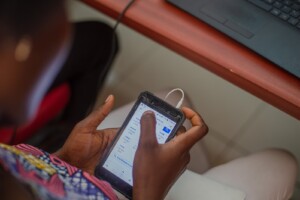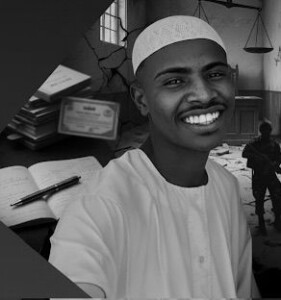Eastern Sudanese Nazir: Clashes are not tribal
According to the Nazir of Hadendowa tribe, Sayed Tirik, the recent clashes in various parts in eastern Sudan are not tribal.
 Sit-in demanding removal of new governor in Kassala (Social media)
Sit-in demanding removal of new governor in Kassala (Social media)
According to the nazir of Hadendowa tribe, Sayed Tirik, the recent clashes in various parts in eastern Sudan are not tribal.
“We know who is leading the war,” he said yesterday in a press conference held by the High Council of Beja Nazirs and Independent Chieftains in Khartoum. It is “a conspiracy led by some politicians who do not care about the stability of the East and do not care about the lives and property of innocent people”.
He called on the protestors at the sit-in in Kassala to refrain from escalating activities, until an agreement is reached between the Forces for Freedom and Change (FFC) and Prime Minister Abdallah Hamdok over the appointment of Saleh Ammar as new civilian governor of Kassala.
Tirik praised the heads of the Sovereign Council and the Council of Ministers for their understanding of the eastern Sudanese people’s rejection of Ammar’s appointment. The governor should resign to “save the government from embarrassment,” he said.
Kassala has unique specifications for a governor, according to Tirik, as it is a border state challenged by insecurity, human trafficking, and smuggling.
The spokesperson for the Beja High Council, Abdallah Obashar, also warned of “a scheme to sow discord in eastern Sudan” yesterday. He criticised “the intransigence of the FFC regarding the new governor”.
However, the governor of the Red Sea state, Abdallah Shangarai, ruled out complicity of politicians in recent violent clashes in the region. He announced the establishment of a Higher Council for Social Peace and a Social Affairs Committee. This committee will advise newly displaced families due to recent clashes.
Eastern Sudan track
Tirik also reiterated that a comprehensive conference should be organised by the eastern Sudanese themselves, regarding the Eastern Sudan track for peace.
According to a previous press statement by the nazir in Khartoum, a committee was established on July 5 to re-discuss the eastern Sudan track of the peace negotiations “to resolve the disputes resulting from a lack of coordination and consultation on the track.”
The decision to form this committee was made by Sovereign Council member Lt Gen Shamseldin Kabashi, Tirik, and Mousa Mohamed Ahmed, head of the Eastern Front, who had a meeting at the Republican Palace in Khartoum yesterday.
The committee will include members of the Sovereign Council, the Council of Ministers, the Forces for Freedom and Change, the Higher Council of Eastern Sudanese Nazirs, political parties, and factions of the Beja Congress.
“The committee is to lay the foundations that will push the peace process in eastern Sudan in the right direction, by building a consensus between all stakeholders in the east. It will ensure peace and stability in the country in general, and in eastern Sudan in particular,” Nazir Tirik said.
An agreement on the eastern Sudan track had already been reached in February.
Political not tribal
In May, the Eastern Sudan Lawyers’ Association called for the formation of an independent investigation committees and the establishment of special courts in Red Sea state, Kassala, and El Gedaref to deal with community violence in the region.
In a statement, the association also urged the formation of a forum of “wise and influential people” that should deal with violent conflicts between groups of people in eastern Sudan. Furthermore, a special prosecution office for information crimes should be established in the three states.
According to the lawyers, the clashes that took place were caused by political disputes rather than ethnic differences.
They pointed to “the negative role of the media by using hate speech and stirring up tribal strife” in the three eastern Sudanese states. “The description of the nature of the events has contributed directly to tribal mobilisation,” they said.
Greedy parties
In Port Sudan, Amal El Zaki, head of the Red Sea state Women’s Union, accused affiliates of the ousted regime of Omar Al Bashir of provoking conflict in the region. She called out “greedy parties” in neighbouring countries who are using harbours for smuggling.
“There are hidden hands that want to thwart the transitional period,” she told Radio Dabanga in an interview to be broadcast in Arabic yesterday.
The Women’s Union, along with other organisations, have proposed an initiative for peaceful coexistence in the Red Sea state.
* A nazir is a state-appointed administrative chief of a tribe, according to the native administration system in Sudan.
Radio Dabanga’s editorial independence means that we can continue to provide factual updates about political developments to Sudanese and international actors, educate people about how to avoid outbreaks of infectious diseases, and provide a window to the world for those in all corners of Sudan. Support Radio Dabanga for as little as €2.50, the equivalent of a cup of coffee.












 and then
and then